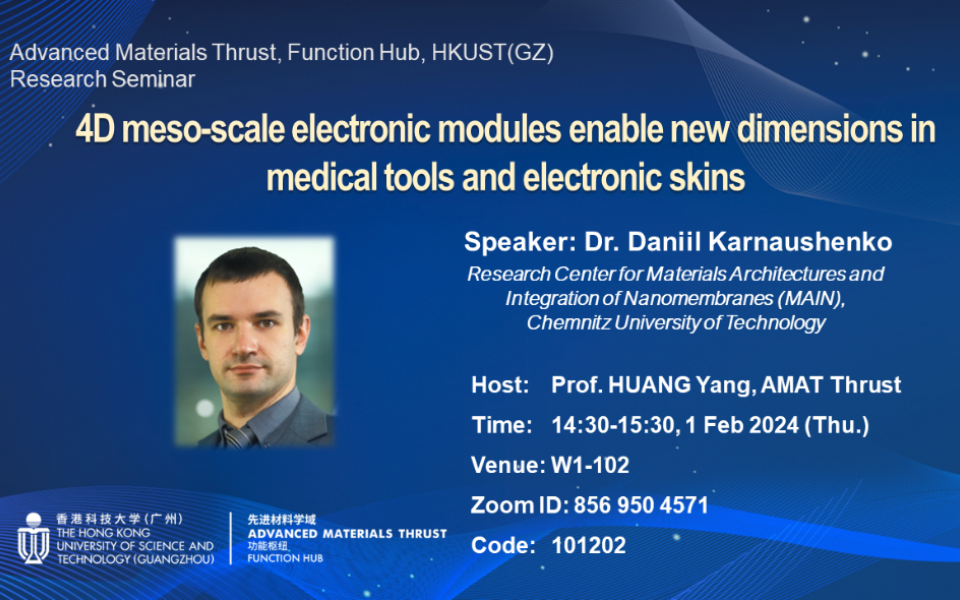Public Research Seminar by Advanced Materials Thrust, Function Hub - 4D meso-scale electronic modules enable new dimensions in medical tools and electronic skins
Supporting the below United Nations Sustainable Development Goals:支持以下聯合國可持續發展目標:支持以下联合国可持续发展目标:
State-of-art meso scale systems for IoT, e-skins or smart-dust applications, medical or commercial products are essentially 3D architectures, whose geometry plays vital role when providing communication, sensing, actuation and power management functions. 3D architectures are envisioned to become a driving force for 3D electronic devices designed, microfabricated and self-assembled from planar thin-film structures and self-organized components. Characteristic components serving these functions are helical antennas, vector field sensors, medical catheters and implants (e.g. stents and neural probes), transformers, capacitors, inductors and resonant cavities. These, 3D components are static, functionally heterogeneous and spatially separated requiring nontrivial sequential assembly and packaging procedures, which hinder further miniaturization and development of next generation mesoscale systems. Here, difficulties, demands and next generation efficient parallel assembly approaches operating at meso (1 um – 1 mm) scale are covered allowing dynamic (4D) modules embodying essential for the system functions. This technology will offer improved performance while reducing overall manufacturing complexity of devices and components by harnessing the relative ease in which it can produce mesoscopic 3D geometries i.e. origami folded structures and “Swiss-roll” architectures. These benefits will lead to tighter a system integration e.g. electronic sins made out of electronic components including active matrix, capacitors, power sources, coils, sensors, actuators and antennas with reduced costs fabricated from a single wafer.
Keywords: 3D architectures, self-assembly, meso scale modules, origami, swiss-roll, integration, microelectronics
Daniil Karnaushenko received his Ph.D. from Chemnitz University of Technology in 2016 on Shapeable Microelectronics, following internships in Austria, Japan, and USA. He was a group leader at the Leibniz Institute for Solid State and Materials Research Dresden (Leibniz IFW Dresden). He subsequently moved to the Research Center for Materials, Architectures, and Integration of Nanomembranes (MAIN) at the Chemnitz University of Technology, where he is a senior scientist and research group leader on shapeable and modular meso-electronics. His research focuses on novel microfabrication processes, including structural self-assembly techniques and thin-film microelectronics.
